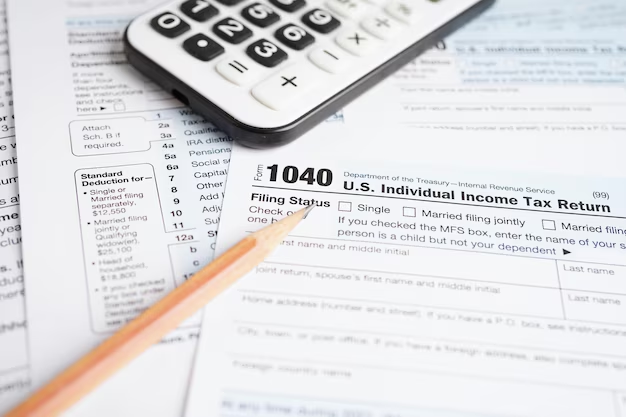Understanding Illinois State Income Tax: What You Need to Know
Navigating the world of taxes can often feel like wading through a maze, filled with terms and regulations that seem designed to confuse the average taxpayer. Perhaps you're wondering, "Does Illinois have state income tax?" Let's explore everything you need to know, offering insights and practical guidance for anyone interested in understanding how Illinois's tax system works. 🤔🏛️
The Basics of Illinois State Income Tax
Is There an Income Tax in Illinois?
Yes, Illinois does indeed have a state income tax. This tax applies to all income earned within the state, and it is one of the primary sources of revenue for the state government. The tax rate is set as a flat rate, meaning it applies uniformly, irrespective of income level.
Understanding the Flat Tax Rate
As of the current tax year, Illinois has a flat income tax rate of 4.95%. This means that whether you earn $30,000 or $300,000, the same percentage of your taxable income will be owed to the state.
Why a flat rate? Illinois opted for this system to simplify tax calculations and administration, avoiding the tiered tax brackets found in many other states. However, it's worth noting that there has been ongoing debate about the fairness of this system.
Filing Requirements and Deadlines
Who Needs to File?
You will need to file an Illinois state income tax return if:
- You are a resident of Illinois and have income subject to Illinois tax.
- You are a part-year resident with income from Illinois during the part of the year you lived there.
- You are a non-resident, but you worked or earned income in Illinois.
Important Deadlines
For most taxpayers, the deadline for filing state income tax in Illinois aligns with the federal tax deadline, usually on or around April 15. It's crucial to keep this deadline in mind to avoid late penalties and interest.
How Your Tax Dollars Are Used
Allocation of State Revenue
Ever wonder where your tax dollars go? In Illinois, income tax revenue is allocated to various sectors to support community and statewide functions:
- Education: A significant portion funds public education.
- Healthcare: Contributions help maintain public health services and facilities.
- Infrastructure: Funds go toward road maintenance and public transport.
- Public Safety: Supports police, fire services, and emergency management.
Controversies and Challenges
Despite these allocations, debates persist about state budget deficits and how effectively taxpayer money is managed. Some argue for reforms to balance spending and revenue, especially in light of economic challenges.
Practical Tips for Taxpayers
Maximizing Deductions and Credits
While Illinois's flat tax doesn't involve the complexity of federal tiered brackets, there are still deductions and credits available:
- Standard Deduction: Helps lower your taxable income.
- Property Tax Credit: Designed for those who own property.
- Earned Income Credit: Available to eligible low-income taxpayers.
Make sure to explore these options to potentially reduce your tax liability.
Keeping Records
Accurate record-keeping is vital. Maintain records of:
- Income statements (W-2s, 1099s).
- Documents related to deductions and credits.
- Copies of filed tax returns.
Using Online Services
Consider using online tax software tailored for Illinois returns. These services can simplify the filing process with prompts and guidance.
Impacts of State Income Tax on Residents
Cost of Living Considerations
Though Illinois's 4.95% flat tax is straightforward, it's crucial to consider the broader impact on cost of living. Cities like Chicago have high living expenses, making budgeting for state taxes an essential aspect of personal finance planning.
Comparisons with Other States
How does Illinois compare with its neighbors? States like Indiana and Missouri have differing tax structures, some with lower rates but varying tax brackets. Understanding these differences is essential for individuals considering relocation or comparing financial climates.
Looking Forward: Future of Illinois Taxation
Possible Legislative Changes
Tax policies are dynamic, responding to both political shifts and economic conditions. Currently, Illinois debates whether to switch from a flat tax to a graduated one. Voters previously rejected this change, but discussions continue amid fiscal challenges.
Staying Informed
Keeping abreast of legislative developments is important:
- Sign up for state tax newsletters.
- Monitor news outlets for updates on potential changes.
- Consult with financial advisors who stay current on tax laws.
Summary of Key Points
Here's a handy overview of the most important aspects to consider about Illinois state income tax:
Key Takeaways 📌
- Flat Rate: Illinois charges a flat tax rate of 4.95% on state income.
- Filing Deadline: Usually aligns with the federal deadline, around April 15.
- Deductions and Credits: Includes standard deductions, property tax credits, and earned income credits.
- Budget Allocation: Education, healthcare, and infrastructure are primary beneficiaries of tax revenue.
- Future Changes: Be vigilant for ongoing discussions about transitioning to a graduated tax system.
Keeping this information in mind can help you navigate the potentially confusing waters of state taxes and plan your finances with confidence. Remember, being prepared and informed empowers you to make the best decisions for your personal and financial well-being. 📊💡
In the ever-evolving world of state taxation, staying informed on regulation changes and understanding how taxes impact your daily life can transform your taxpayer experience from daunting to manageable. Whether you're a resident, moving to Illinois, or just curious about its financial landscape, clarity on these issues is crucial for sound financial planning.

Related Topics
- Am I Tax Exempt
- Are 401k Contributions Tax Deductible
- Are 529 Plan Contributions Tax Deductible
- Are Attorney Fees Tax Deductible
- Are Campaign Contributions Tax Deductible
- Are Charitable Donations Tax Deductible
- Are Church Donations Tax Deductible
- Are Churches Tax Exempt
- Are Closing Costs Tax Deductible
- Are Contributions To 529 Plans Tax Deductible
